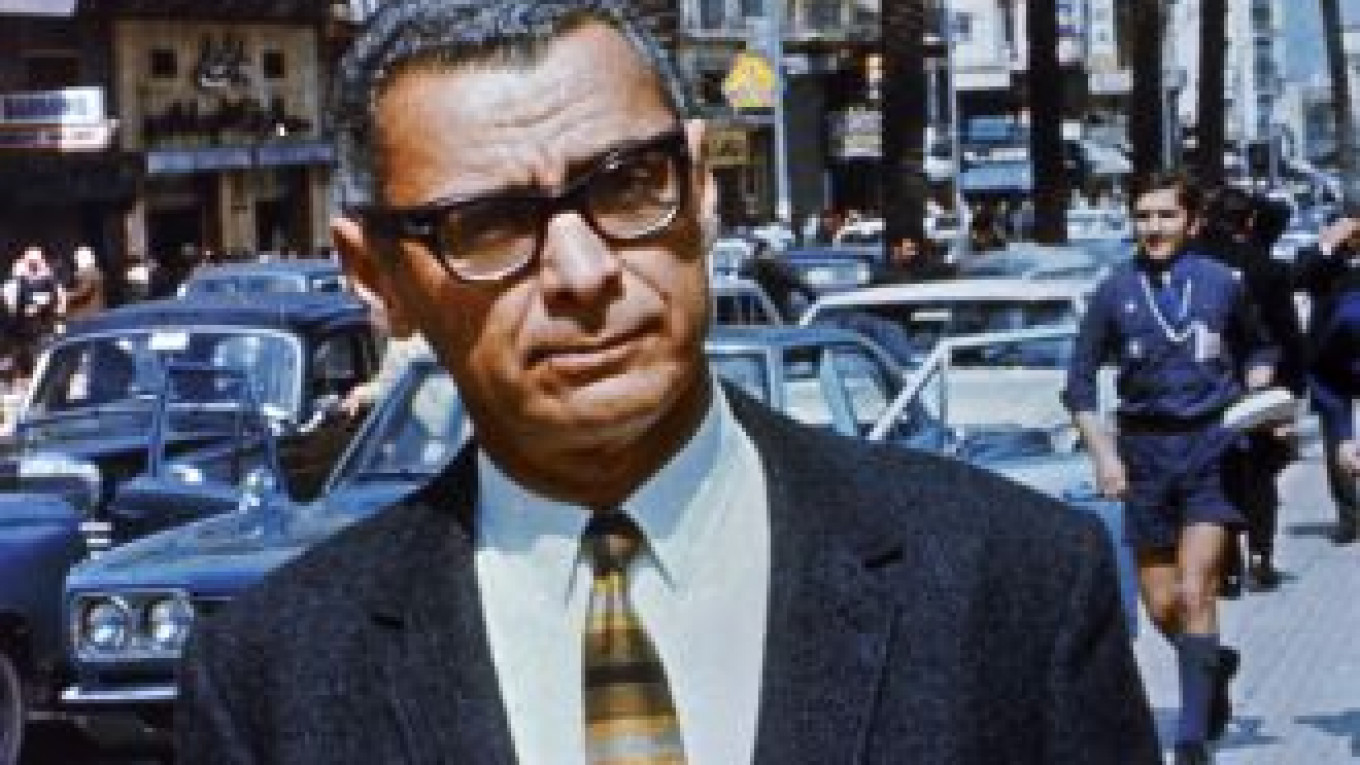NEW YORK — Born in a Japanese fishing village just after his refugee family escaped from Russia's Bolshevik Revolution, Roy Essoyan arrived in the Soviet Union nearly four decades later as an American journalist.
But after three years of hobnobbing with Premier Nikita Khrushchev and other communist leaders, The Associated Press reporter's Cold War adventure ended abruptly. In 1958, he was expelled for reporting that a serious breach had developed between the U.S.S.R. and Mao Zedong's China.
The Foreign Ministry called it "a rude violation of Soviet censorship," but Essoyan had exposed what became known in diplomatic parlance as the "Sino-Soviet split" — and earned himself a one-way ticket out of Moscow.
From Hong Kong, Essoyan continued a career that took him around the globe, with stops in Cairo, Beirut and finally Tokyo. In 1985, he retired to Hawaii, where he died Thursday at age 92.
Born Karekin Essoyan, he was the youngest child of Armenian parents who fled Vladivostok as the Communist upheaval gripped Russia. They later moved to Shanghai as World War II loomed.
Roy had aspired to be a journalist even before graduating in 1936. "I always wanted to write," he said in a 2002 interview.
When World War II ended, Roy got a job at $90 a month with the AP in Shanghai and impressed his boss enough to be offered a visa and assignment to Hawaii. There, he became a U.S. citizen and burnished his English, his third language after Russian and Japanese.
After a steady news diet of Hawaiian volcanoes and VIP visits to the islands, the Russian-speaking Essoyan was tapped in 1955 to join AP's Moscow bureau.
Years later, he recalled how foreign correspondents were forced to live in state-assigned apartments where elevators took passengers up but not down, and government eavesdropping was so pervasive that "even the lampshades were bugged."
Denied contact with ordinary Russians, reporters scoured propaganda-laden newspapers and official pronouncements for nuggets of news and never missed diplomatic receptions where Soviet officials might turn up. But everything was subject to strict and sometimes arbitrary censorship.
In 1958, Essoyan slipped past the censors a "news analysis" saying Khrushchev and Mao were secretly but sharply at odds over Mao's refusal to agree to an international summit meeting unless his Communist regime replaced Nationalist China as Beijing's representative.
Essoyan had been warned twice by Soviet censors, but his expulsion from Moscow — regarded by many Western journalists as a badge of honor — was likely assured when influential Washington-based columnist Joseph Alsop singled him out for praise.
"If the Russian censors have permitted Essoyan to say that Nikita Khrushchev has suffered a public setback, then Nikita is out," Alsop told his readers.
That wasn't what happened, Essoyan noted later. The censors had not approved his story, and Khrushchev was not out. Essoyan was.
Being banished from Moscow, however, did not end his interaction with Soviet officials. During a visit to Indonesia years later, Khrushchev spotted a familiar face — Essoyan's — among the press, and to the dismay of other reporters, invited the American to join him for a private talk.
As they chatted in Russian, Khrushchev made a sneering comment about Essoyan's baseball cap: "Why do you wear those silly beanies?" Essoyan responded by playfully sticking the cap on the Soviet leader's head — a moment captured by photographers.
Based in Hong Kong after leaving Moscow, Essoyan covered the early days of the Vietnam War.
After a brief stint in Cairo, Essoyan was named the AP's chief of Middle East operations in Beirut in 1965 and became its chief of North Asia services, based in Tokyo, in 1973.
In interviews after retiring, Essoyan offered a nostalgic view of wire service reporting.
"It was a great life, 40 years of expenses-paid vacation," he told one interviewer.
A Message from The Moscow Times:
Dear readers,
We are facing unprecedented challenges. Russia's Prosecutor General's Office has designated The Moscow Times as an "undesirable" organization, criminalizing our work and putting our staff at risk of prosecution. This follows our earlier unjust labeling as a "foreign agent."
These actions are direct attempts to silence independent journalism in Russia. The authorities claim our work "discredits the decisions of the Russian leadership." We see things differently: we strive to provide accurate, unbiased reporting on Russia.
We, the journalists of The Moscow Times, refuse to be silenced. But to continue our work, we need your help.
Your support, no matter how small, makes a world of difference. If you can, please support us monthly starting from just $2. It's quick to set up, and every contribution makes a significant impact.
By supporting The Moscow Times, you're defending open, independent journalism in the face of repression. Thank you for standing with us.
Remind me later.






